Faculty News
Pages
 Ayesha Ghazi Edwin Featured in PBS News on the Importance of Voting
Ayesha Ghazi Edwin Featured in PBS News on the Importance of VotingClinical Associate Professor Ayesha Ghazi Edwin was featured in a PBS News story on the importance of voting to new U.S. citizens. Ghazi Edwin was born in England; her family came to the U.S. when she was three. Her mother says that the day their family received their U.S. citizenship was one of the happiest days of her life.
“People always say representation is important, and I have too. But I didn’t actually realize the truth of the statement until today,” Ghazi Edwin said. “Having an Asian American in the highest level of office does feel like empowerment and protection, because right now we’re playing a system and a game that has been run by people who don’t look like me.”
- September 24, 2024
- Learn more »
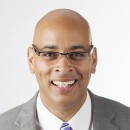 William Elliott III Speaks with the Washington Post About Child Savings Accounts
William Elliott III Speaks with the Washington Post About Child Savings AccountsProfessor William Elliott III spoke with the Washington Post for an article about the new Brilliant Futures program, a child savings account program for two cohorts of students in Prince George’s County in Maryland.
Elliott discussed how college savings programs can give participants long-term hope. “Oftentimes when we think about poverty, we only think about the starving kid who can’t eat, not understanding that the additional problem and very significant problem with being poor is that you don’t think you have a future,” he said.
- September 20, 2024
- Learn more »
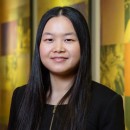 Xiaoling Xiang Awarded Grant from the National Institute of Mental Health
Xiaoling Xiang Awarded Grant from the National Institute of Mental HealthAssociate Professor Xiaoling Xiang is the principal investigator on a newly funded R01 grant from the National Institute of Mental Health. The study will span the next five years and focus on the implementation and effectiveness of Empower@Home, a digital mental health intervention designed to address depression in homebound older adults.
“I've dedicated thousands of hours to developing and refining Empower@Home, and with this new R01 funding, we can now bring the program beyond research and into real-world communities. We will work closely with aging service agencies and train non-specialist agency staff readily available even in low-resource settings to support the program’s uptake and usage,” said Xiang. “Our goal is to create a scalable model that breaks down barriers to mental health care and delivers person-centered, technology-driven treatments to homebound older adults.”
- September 19, 2024
- Learn more »

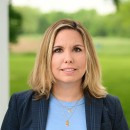
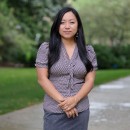
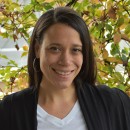 Three NCID Anti-Racism Grants Awarded to School of Social Work
Three NCID Anti-Racism Grants Awarded to School of Social WorkU-M’s Anti-Racism Collaborative, an initiative of the National Center for Institutional Diversity, has announced the 2024 Anti-Racism Grants.
Professor Joseph Himle and Associate Professor Addie Weaver have received an Anti-Racism Grant for their project FARWell: The Formula for Anti-Racist Wellness and Therapy. This project — a community-university partnership between My Brother’s Keeper, Formula 734, and social work researchers at U-M and The Ohio State University — will support the development and evaluation of a transdiagnostic cognitive behavioral therapy for depression and anxiety, designed for and by young Black men.
Joint PhD Student Irene Routté has received an Anti-Racism Graduate Research Grant for her project Landscapes of (Im)Mobility: Congolese Refugee Youth, the U.S. Resettlement System and Spatial Negotiations of Belonging.
Associate Professor Odessa Gonzalez Benson has received an Anti-Racist Digital Research Initiative Grant for her project A Digital Collection as Narrative and Visualization of the Journey of Resettled Refugees.
The Anti-Racism Grants are sponsored by the Office of the Vice President for Research in partnership with the National Center for Institutional Diversity’s Anti-Racism Collaborative, which aims to support and amplify the work of anti-racism scholars at U-M.
- September 13, 2024
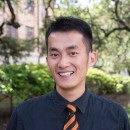 Anao Zhang Quoted in Everyday Health
Anao Zhang Quoted in Everyday HealthAssociate Professor Anao Zhang's article "The efficacy of cognitive behavioral therapy for mental health and quality of life among individuals diagnosed with cancer: A systematic review and meta-analysis," was published in Cancer Medicine and featured in Everyday Health. Zhang says the findings confirm that cognitive behavioral therapy can help many people cope with the negative feelings that come up while living with cancer.
- September 3, 2024
- Learn more »
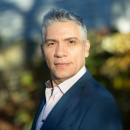 Rogério M. Pinto Is Featured on the Academic Minute
Rogério M. Pinto Is Featured on the Academic MinuteProfessor Rogério M. Pinto was featured on Academic Minute, a daily radio segment showcasing academic research on WAMC/Northeast Public Radio. In the segment, Pinto explores how artwork can help white heterosexual men to confront feelings of homophobia and sexism.
- August 8, 2024
- Learn more »
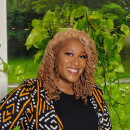 Lexx Brown-James is Quoted in SELF Magazine
Lexx Brown-James is Quoted in SELF MagazineLexx Brown-James, director of the School’s Sexual Health Certificate Program, spoke with SELF magazine in an article on how verbal affirmation — a praise kink — can boost confidence and pleasure in your sex life.
- August 6, 2024
- Learn more »
 Matthew Smith Receives the MICHR 2024 Distinguished Clinical and Translational Research Mentor Award
Matthew Smith Receives the MICHR 2024 Distinguished Clinical and Translational Research Mentor AwardProfessor Matthew Smith is the recipient of the 2024 MICHR Distinguished Clinical and Translational Research Mentor Award. Sponsored by the Michigan Institute for Clinical & Health Research (MICHR), this award recognizes the value of mentoring at U-M in helping early career investigators to reach across disciplinary boundaries in pursuit of science.
Smith is one of seven faculty and staff members who will be honored at the 2024 Mentoring Forum, co-sponsored by the MICHR and the Medical School Office of Faculty Development, in September. All are invited — in person or online — to celebrate our awardees and the spirit of mentorship.
- August 6, 2024
- Learn more »
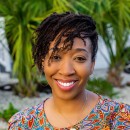 Daphne Watkins Receives Pynn-Silvermann Lifetime Achievement Award
Daphne Watkins Receives Pynn-Silvermann Lifetime Achievement AwardProfessor Daphne Watkins has received the Pynn-Silverman Lifetime Achievement Award from the Textbook & Academic Authors Association. The award was established to honor individuals whose achievements over a career demonstrate the highest degree of commitment to excellence in authoring works to advance their discipline, encouraging and supporting the work of colleagues, and educating students in the field.
Watkins is the Letha A. Chadiah Collegiate Professor of Social Work and a University Diversity and Social Transformation Professor.
- June 11, 2024
- Learn more »
- Terri Gilbert Receives Youth Justice Lifetime Achievement Award
Lecturer Terri Gilbert has received the Youth Justice Lifetime Achievement Award from the Michigan Center for Youth Justice. “This work is not done by one person alone, this award is more than a personal accolade; it is a testament to the collective efforts of many,” said Gilbert. “I extend my heartfelt gratitude to countless dedicated colleagues, advocates and mentors who have been a part of this journey and, most importantly, the young people and families whose lives we strive to impact every day.”
“My guiding philosophy has always been to spend my life working on something that will outlast it. Reflecting on my journey, it’s hard to believe that I have spent almost 45 years in child welfare and youth justice. This path has been fraught with challenges yet filled with moments of profound impact and hope.”
- June 11, 2024